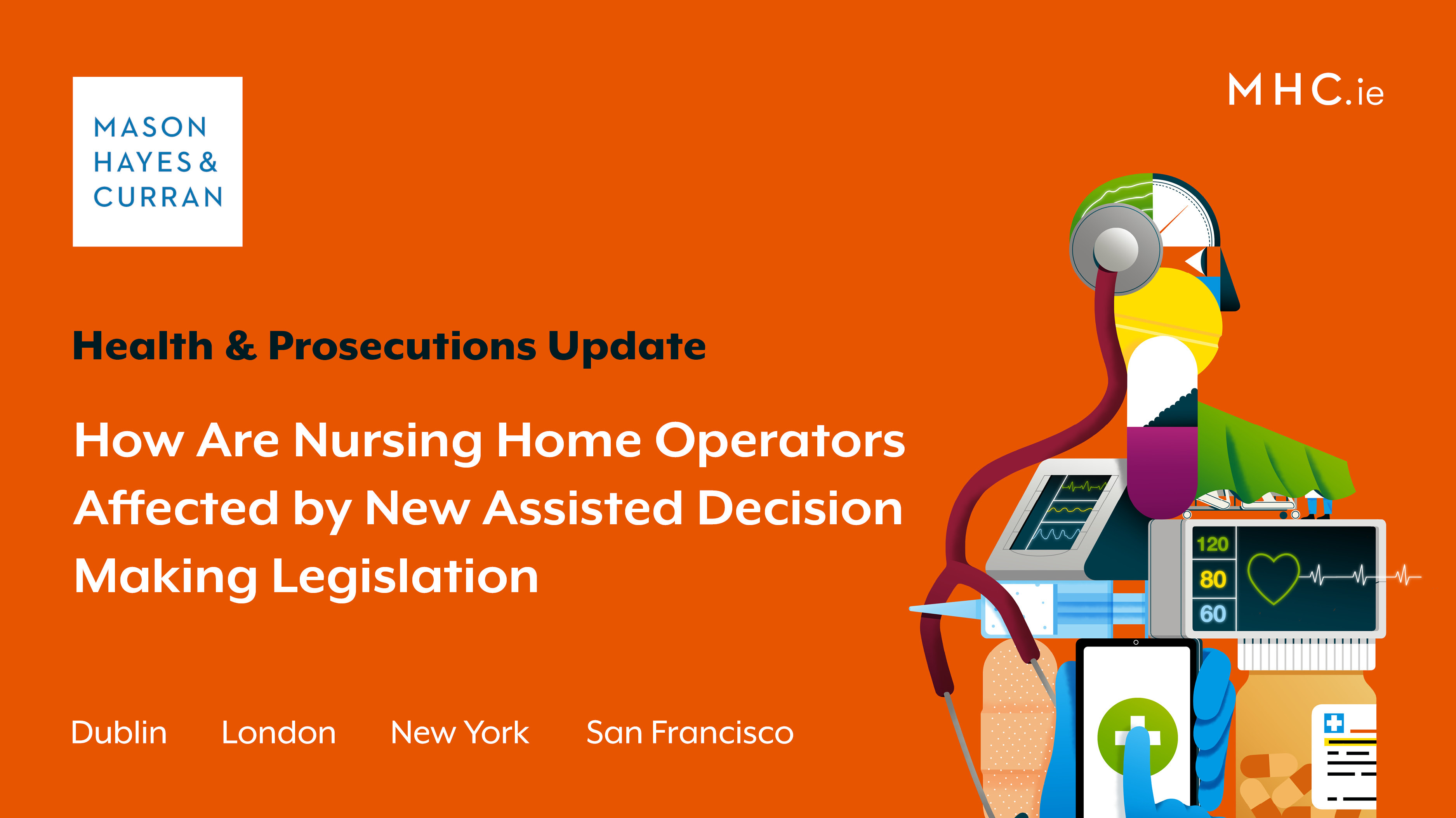How Are Nursing Home Operators Affected by New Assisted Decision Making Legislation?

A new system of assisted decision-making was introduced in April 2023 for Ireland. Our Health & Prosecutions team reviews the implications of this system for nursing home operators.
The Assisted Decision-Making (Capacity) Act 2015 finally became law on 26 April 2023. There are five types of decision supports under the new Act. Three of these apply when a person currently requires decision-making assistance, and two apply in future instances should the person lose decision-making capacity. Nursing home operators need to be familiar with the different categories of decision supports.
Decision Support Service
The Decision Support Service (DSS) is the statutory agency responsible for oversight and implementation of the new assisted decision-making system in Ireland.
Decision supports – current
- Decision-Making Assistance: A person can formally appoint a decision-making assistant, who is supervised by the DSS. The person retains ultimate decision-making responsibility.
- Co-Decision-Maker: A person can appoint someone to make decisions on their behalf on a joint responsibility basis. The co-decision-maker is also subject to the supervision of the DSS.
- Decision-Making Representative: The Circuit Court can appoint a representative to make certain decisions on behalf of persons who are unable to make such decisions on their own behalf.
Decision supports – future
- Enduring Powers of Attorney: A person can appoint an ‘Attorney’ to make decisions on their behalf in the event that the first person loses the capacity to do so at a future point in time.
- Advance Healthcare Directive: This is a legal document which captures a person’s future healthcare wishes, and only takes effect if the person lacks capacity to make decisions regarding their own healthcare.
Registers
The DSS maintains registers of Co-Decision-Making Agreements, Decision-Making Representation Orders and EPAs. Inspection of the registers is permitted where a legitimate interest can be established. Nursing homes may need to consult the registers in certain circumstances, and the basis for these should be clearly documented.
High Court jurisdiction
Existing Wards of Court will transition out of the High Court’s wardship jurisdiction within the next three years. Any Wards who are deemed to have capacity will be discharged from the wardship jurisdiction, while any Wards who continue to have impaired capacity can avail of the appropriate support from the DSS. The High Court’s inherent jurisdiction has emerged as a solution to gaps in the law arising from the introduction of the new Act.
Conclusion
It is essential that nursing home operators ensure that the decision supports provided for in law are accessible by residents in their care. In addition, residents with decision supports already in place should be documented on a central register, to ensure that all appropriate parties are consulted in the course of any decision-making.
Our team is always available to advise and discuss matters related to assisted decision-making. If you are seeking an informal call or urgent advices, please get in touch with a member of our Health & Prosecutions Team.
The content of this article is provided for information purposes only and does not constitute legal or other advice.
Share this:



